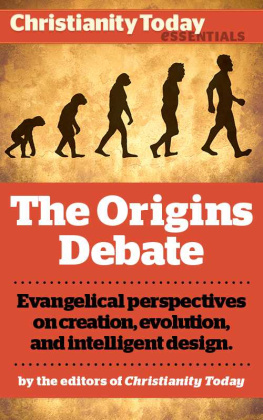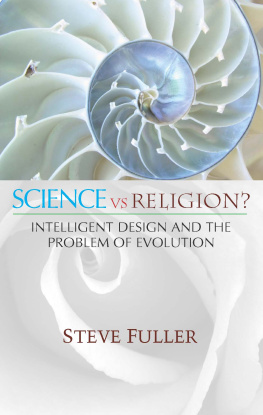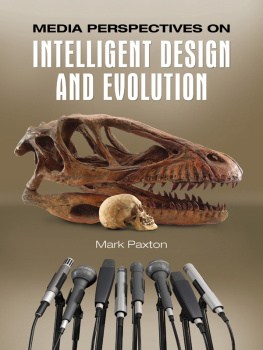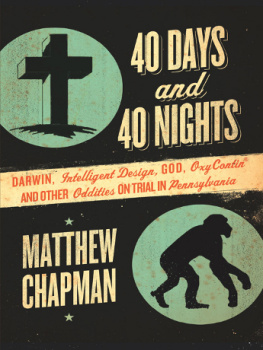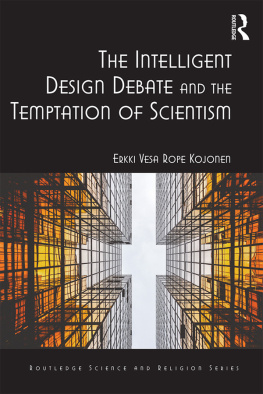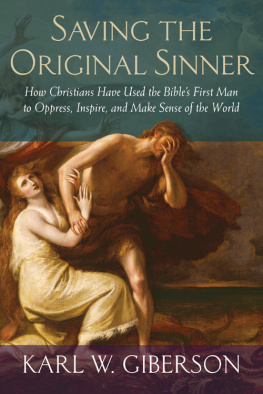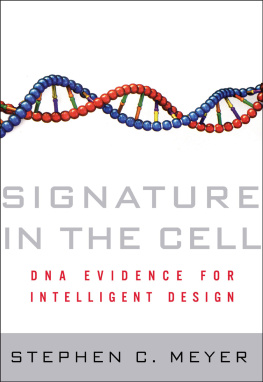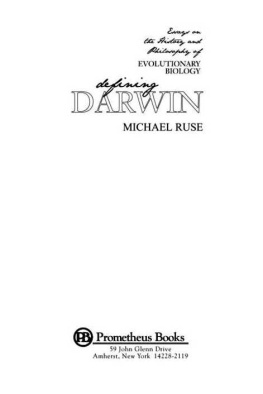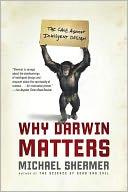Introduction
Beginnings tell us a lot. How we open a proposal for marriage, shape the entrance to a building, or start the first chapter of a book makes a big impression because, in fact, it tells us a lot. If I begin a speech by singing the chorus of a song, hearers may assume I like music and find it meaningful, or that Im pretty outgoing and willing to try something unusual to grab an audiences attention. That moment at the start of something gives clues regarding what were about to experience.
This is certainly true about the beginning of all things. What the Bible says and how we interpret it tells us a lot about the God who got everything rolling, and about everything he got rolling, especially us human beings. If he created the universe instantaneously and rapidly, in seven days, that says one thing about his character. If he did so gradually, over ages and ages, that says something else. Humankind as the direct creation of God out of the dust is one thing; to become human at the end of a long evolution is another. Both views have been championed by devout Christians. Both groups find rich theological meaning in their approach. We all agree that God is the ultimate author of the universe, but we disagree about how it came to be.
Christianity Today has been covering the debates surrounding human origins since its own origin in 1956. In the last few decades, the debates have become more intense, unfortunately causing more division in the body of Christespecially with the rise of the Intelligent Design (ID) movement, which is the old teleological proof for the existence of God grounded on contemporary science. CT has tried to be a mediating influence between evolutionary creationists (God took millions of years to shape his current creation) and seven day creationists (God did all this in seven literal days), and views that fall between these two. And along the way, weve tried to help readers understand what difference it all makes. Weve gathered in this eBook articles from the last dozen years that best clarify the nature and importance of the debates.
For example, take the issues raised in the , The Search for the Historical Adam.
The recent controversy
The story of creation, told in Genesis and elaborated in the New Testament, pictures a rational intelligence creating an orderly and predictable cosmos. Without that predictability in the natural world, neither Newton nor Einstein would have been possible. There are times, however, when a careful reading of the natural world seems to conflict with our reading of Scripture.
Sometimes, Christian ways of thinking must adjust. Two famous namesCopernicus and Galileotell that tale. Other times, Christian thinkers adopt some of what scientific research suggests but hold firm on key aspects of biblical knowledge. The name B. B. Warfield tells that tale: the Princeton theology professor (d. 1921) taught in the wake of the Darwinian revolution. He and fellow evangelical leaders saw good reasons to believe that humanitys physical form was descended from other animals. However, two key biblical teachings kept these theologians from eating the whole Darwinian apple.
First, in Darwinian thought, pure randomness was the engine of evolution. But randomness denies the divine Reason (the logos in the language of Johns Gospel) behind the creative process. Christians must root for intelligence over chance.
Second, Darwinian evolution challenged the belief that human beings were created in the image of God. This doctrine was a hedge against racist theories that would be used to subjugate, exploit, and eradicate undesirable people. Warfield rightly saw the dangers in Darwin, while trying to learn from the biological science of his time.
In , Richard N. Ostlingwho has been a religion writer with Time and the Associated Press, and at one time, CTs news editorreports the claims of recent genetic research that the human race did not emerge from pre-human animals as a single pair, as an Adam and an Eve. The complexity of the human genome, we are told, requires an original population of around 10,000.
Christians have already drawn the line: there must be an original pair of humans endowed with soulsthat is, the spiritual capacity to relate to God in the special way Genesis describes. In 1996, John Paul II stressed Pius XIIs dictum that if the origin of the human body comes through living matter which existed previously, the spiritual soul is created directly by God. And institutional statements of faith, such as Wheaton Colleges, set limits by affirming that original couples existence:... God directly created Adam and Eve, the historical parents of the entire human race... in his own image, distinct from all other living creatures, and in a state of original righteousness.
What is at stake?
First, the entire story of what is wrong with the world hinges on the disobedient exercise of the will by the first humans. The problem with the human race is not its dearth of insight but its misshapen will.
Second, the entire story of salvation hinges on the obedience of the Second Adam. The apostle Paul, the earliest Christian writer to interpret Jesus work, called Adam a type of the one who was to come (Rom. 5:14, ESV), and wrote that [j]ust as we have borne the image of the man of dust [Adam], we shall also bear the image of the man of heaven [Jesus] (1 Cor. 15:49, ESV). He elaborated an Adam Christology that described a fallen humanity, headed by Adam, and a new, redeemed humanity with Christ as its head.
This understanding, that Christs obedience undoes Adams disobedience, is not some late development, but is integrated with the earliest interpretations of what God did and is doing in Christ. This conceptual framework is almost impossible without a first human couple.
Hebrew thought offers one clue to resolving this tension: the corporate nature of humanity. Scripture often calls groups of people by the name of their historical head. Israel is an obvious example. So are Canaan and Cush.
At times, Scripture also holds groups of people morally responsible for the actions of some of their members.
Thus, some have suggestedas does John Collins in Did Adam and Eve Really Exist? (Crossway, 2011)that if both biblical and scientific clues suggest a larger population contemporary with Adam and Eve (Whom did Cain marry? Whom did God protect him from?), we can still conceive of Adam and Eve as leaders of that original population. That suggestion has the virtue of embracing both a prehistoric couple and a prehistoric population.
At this juncture, we counsel patience. We dont need another fundamentalist reaction against science. We need instead a positive interdisciplinary engagement that recognizes both the good will of all involved and that creative thinking takes time. In the long run, it may be the humility of our scholars as much as their technical expertise that will bring us to deeper knowledge of the truth.

